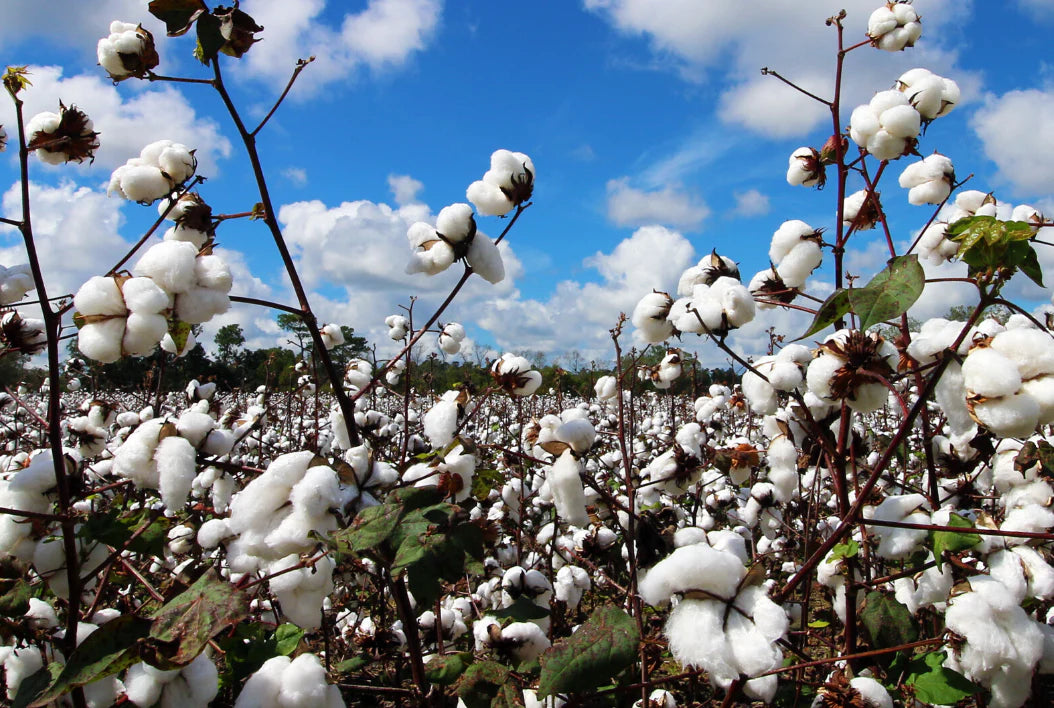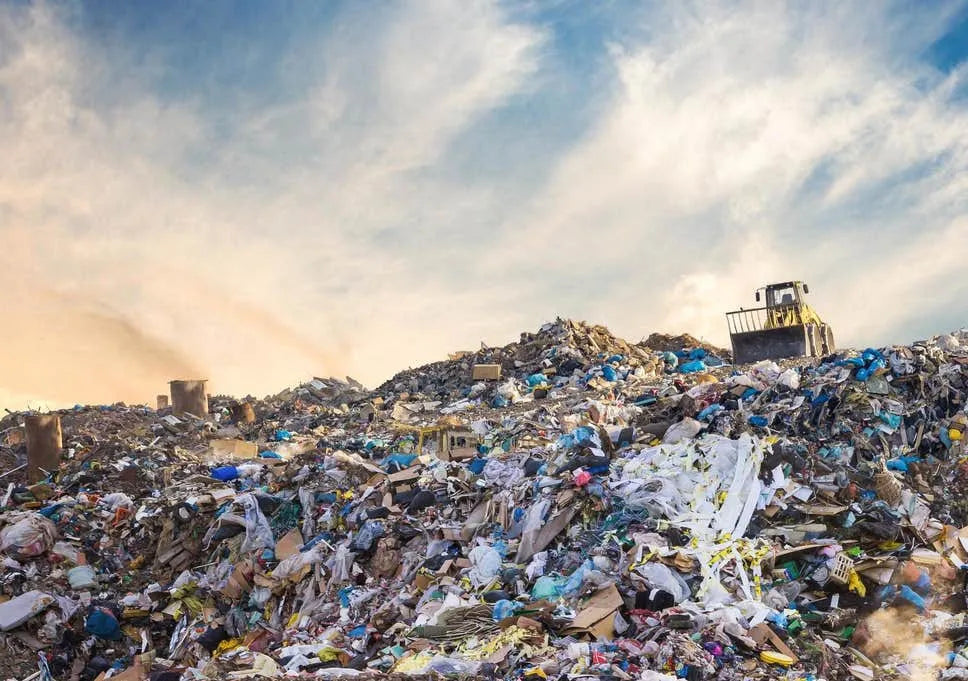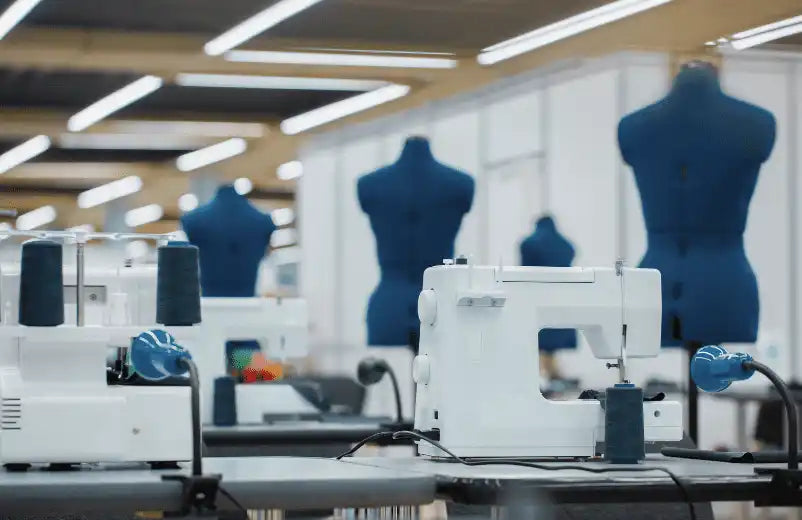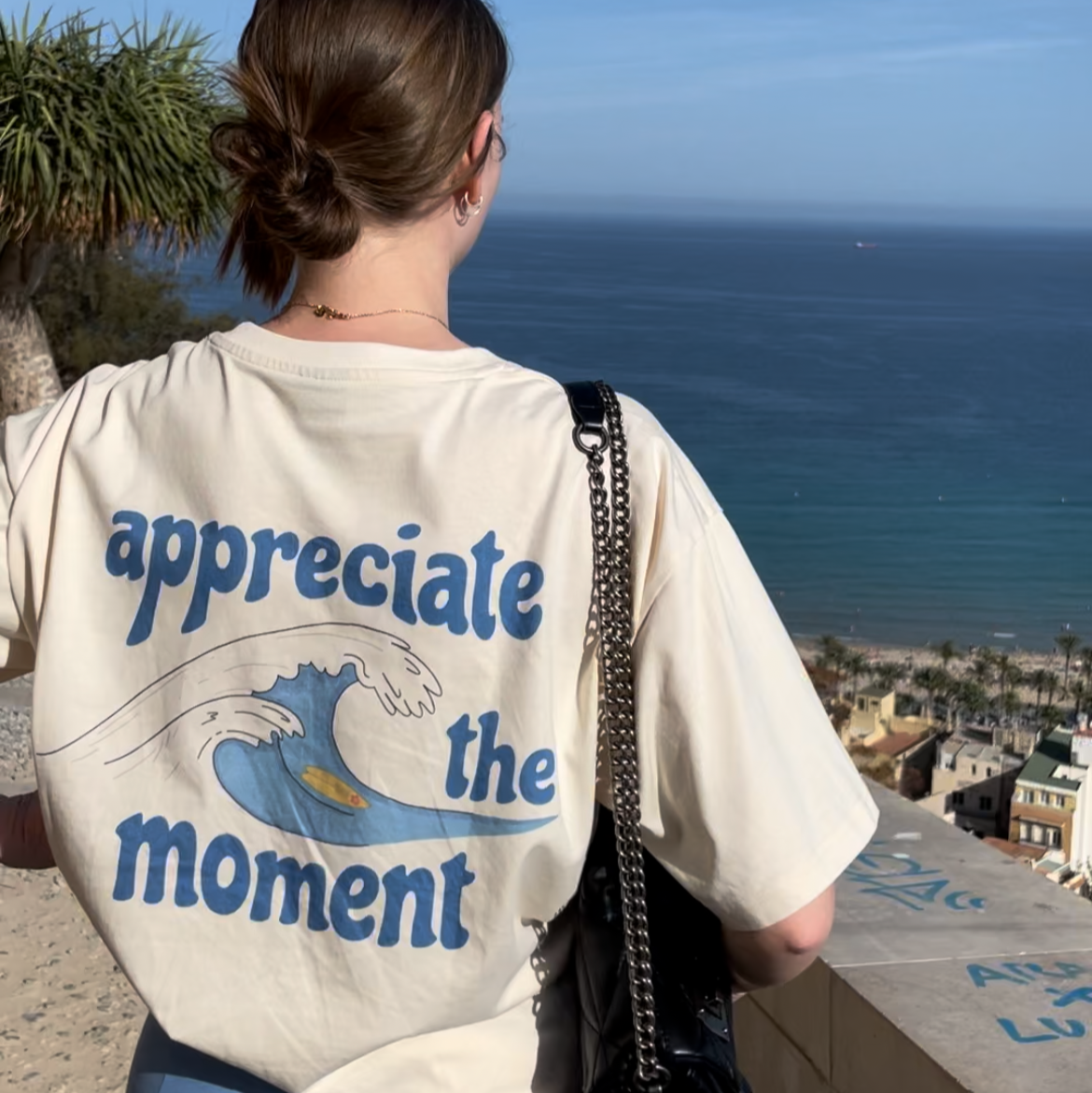
Materials matter.
In a world where "sustainability" is thrown around so easily, it's important to recognize the true meaning behind it. At Sunly Wave, we know that sustainability isn't just a fancy word; it's a core value that guides everything we do. Our products are proudly made with organic and recycled materials, reflecting our commitment and passion for sustainable and ethical fashion.
We recognize the urgency of embracing a slower, more thoughtful approach to fashion – one that prioritizes quality, longevity, and environmental responsibility, over fleeting trends and mass production. We realize the importance our choices have on the environment, which motivates us to continuously innovate and improve our practices.

Why is fast fashion bad?
The fashion industry's environmental impact is significant, involving issues such as water pollution, waste, and carbon emissions. Central to this impact is the rise of fast fashion, where clothes are made quickly and cheaply to keep up with the latest trends. Unfortunately, this often means sacrificing quality and causing harm to the environment.
Fast fashion encourages a cycle of overconsumption, urging consumers to purchase lots of clothes that don't last long, which leads to more waste. It often also means that the people making the clothes aren't treated fairly and may not even earn enough money to live on. So, while fast fashion might seem convenient and affordable, it has negative consequences for both people and the planet.

Each piece is made with purpose.
We strive to offer easy and accessible streetwear garments with great designs, while keeping sustainability at the centre of every decision we make. From sourcing materials to manufacturing processes, we prioritize eco-friendly practices and ethical standards. We carefully select our sustainable materials to minimize our environmental footprint. We take the time to ensure high quality, even if it means longer lead times and higher production costs.

Start your Sustainable Journey with us.
Encouraging people to play a part is crucial for building a sustainable fashion industry. While there is no such thing as perfection, every small mindful change contributes significantly. Opt for quality over quantity, invest in timeless pieces that will last for years, support brands that prioritize sustainable initiatives, and practice reducing, reusing, and recycling in your wardrobe. Stay informed, demand accountability from brands about their production process, and lead by example by sharing your journey towards a more sustainable wardrobe with others.
Collapsible content
PRODUCTION PROCESS
Our clothing blanks are carefully sourced from trusted suppliers who are committed to sustainable production practices. We ensure that our fabrics meet high environmental standards, from the cultivation of organic materials to the manufacturing processes.
Once the blanks are ready, we handle all design and printing in-house at our office in Belgium. This local production setup minimizes our carbon footprint, reduces waste, and cuts down the environmental impact of long-distance shipping. It also allows us to maintain full control over every aspect of the creation process, ensuring the highest standards of sustainability and quality.
We are deeply committed to ethical practices throughout our supply chain, from sourcing materials to producing the final product. Our close collaboration with suppliers ensures that all workers are paid fairly and work in safe, healthy conditions.
This combination of ethical manufacturing, local production, and mindful design enables us to offer products that are not only high-quality but also better for the planet. It’s a more conscious approach to fashion, one that aligns with our values of sustainability and social responsibility.
DELIVERY PROCESS
PACKAGING
We use POLLAST!C Poly Mailers, made from Certified Ocean Bound Plastic - plastic pollution that meets the following criteria; abandoned, found in areas lacking waste management infrastructure, or located within 50km of the coast. With an estimated 8-12 million tonnes of plastic entering our oceans every year, and this is expected to triple by 2040. Over 70% of that plastic enters oceans via land and over 80% of that comes from Asia. That's why the collection efforts focuses on Southeast Asian coastal communities.
Independent Life Cycle Analysis has revealed that POLLAST!C mailers boast the lowest carbon footprint among commercially available packaging options, with a CO₂ footprint 75% lower than traditional plastic mailers and 30% lower than 100% recycled paper, making them a environmentally conscious choice. Recycle with soft plastics, or re-use thanks to the second seal.
SHIPPING
Every piece undergoes careful inspection before shipment to minimize returns and uphold sustainability. By ensuring that only quality items are shipped, we minimize the environmental impact of transportation, reducing unnecessary shipping emissions associated with returns. Additionally, we have provided a detailed sizing guide to help customers find their perfect size before making a purchase.
OUR CERTIFICATES
GLOBAL ORGANIC TEXTILE STANDARD (GOTS)
The Global Organic Textile Standard (GOTS) is an internationally recognized standard for textiles made from organic fibers, ensuring environmentally and socially responsible manufacturing from raw material to finished product. The standard covers the processing, manufacturing, packaging, labeling, trading, and distribution of all textiles made from at least 70% certified organic natural fibers, offering a credible assurance of quality and ethical production to consumers.
OEKO-TEX® STANDARD 100
The OEKO-TEX® Standard 100 is a globally recognized certification that verifies that textile products have been tested for harmful substances and are safe for human health. It sets strict limits on the use of certain chemicals in textiles, ensuring that certified products are free from harmful levels of substances such as heavy metals, carcinogens, and allergens. This certification provides consumers with confidence that the textile products they purchase have been thoroughly tested for safety and compliance with international health and environmental standards, thus promoting the production of safe and environmentally friendly products. Consumers can trust products with the OEKO-TEX® Standard 100 label to be free from harmful substances and safe for use.
GLOBAL RECYCLE STANDARD (GRS)
The Global Recycle Standard (GRS) is an international, voluntary full product standard that sets requirements for third-party certification of Recycled Content, chain of custody, social and environmental practices, and chemical restrictions. It verifies recycled content in products and promotes responsible production practices. Covering textiles, apparel, and more, ensuring sustainability and transparency in manufacturing.
ORGANIC 100 CONTENT STANDARD (OCS)
The Organic 100 Content Standard (OCS) is a certification that guarantees products are made entirely (100%) from organic materials. This international voluntary standard, verifies the traceability of these materials from their source to the final product, offering consumers confidence in the authenticity and quality of the organic content. This standard is particularly valuable for those seeking products that are fully organic and free from synthetic additives or chemicals. The goal of the OCS is to increase organic agriculture production.
VEGAN (PETA)
PETA (People for the Ethical Treatment of Animals) is an organization that advocates for animal rights. It focuses on promoting veganism, opposing animal cruelty, and raising awareness about the exploitation of animals for food, clothing, entertainment, and other purposes. PETA encourages people to adopt a vegan lifestyle to prevent animal suffering and protect the environment.








